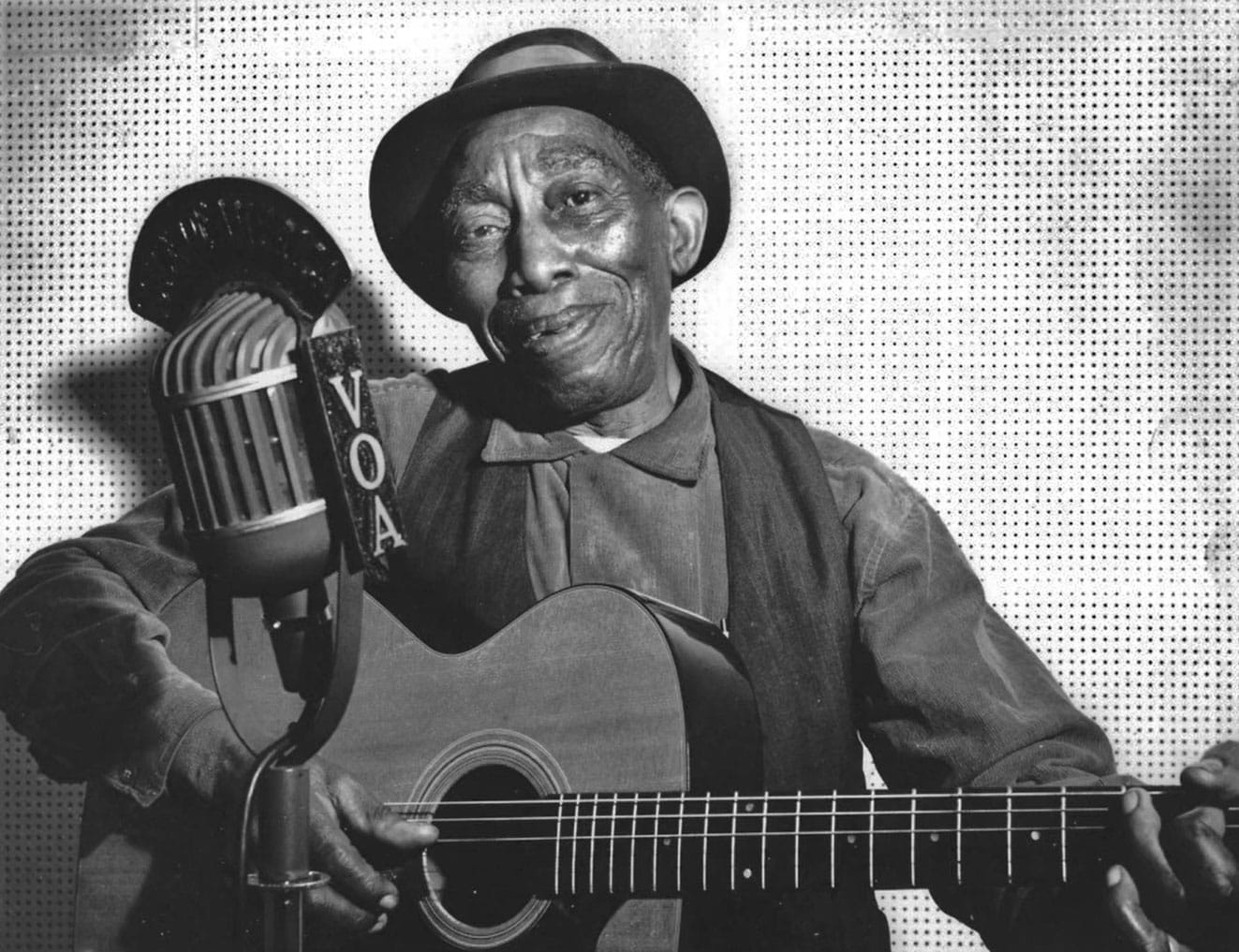Spike Driver Blues

by Shuja Haider
Last month, a shotgun shack in Carroll County, Mississippi burned to the ground. A tragic event in any circumstances, but this one also represented the loss of a site of quiet significance in American history. The small, 200-year old structure off County Road near the unincorporated community of Avalon was the home of John Smith Hurt, born in 1892, who worked most of his life as a sharecropper in the surrounding area until his death in 1966. But as a composer, player, and singer of the blues, Mississippi John Hurt attained immortality, twice.
Hurt was one of countless musicians in regions throughout the American South who played and sang for locals—in his case, at grocery stores and other gathering places in the all-Black community of Avalon, as well as surrounding white neighborhoods—while holding down a day job, and without any kind of national reach. In 1928, representatives from OKeh records, a label specializing in what they called “race records,” came looking for him, having heard rumors of a remarkable unrecorded blues singer while on a scouting expedition for new talent. On Valentine’s Day of that year, Hurt traveled to Memphis to record for OKeh, with a second session to follow that December in New York. He cut 20 songs, many of them based on traditional folk tunes. Seven of them have never been found.
It’s a paywall, but a small one
Read this post and get our weekdaily newsletter for $3 a month
